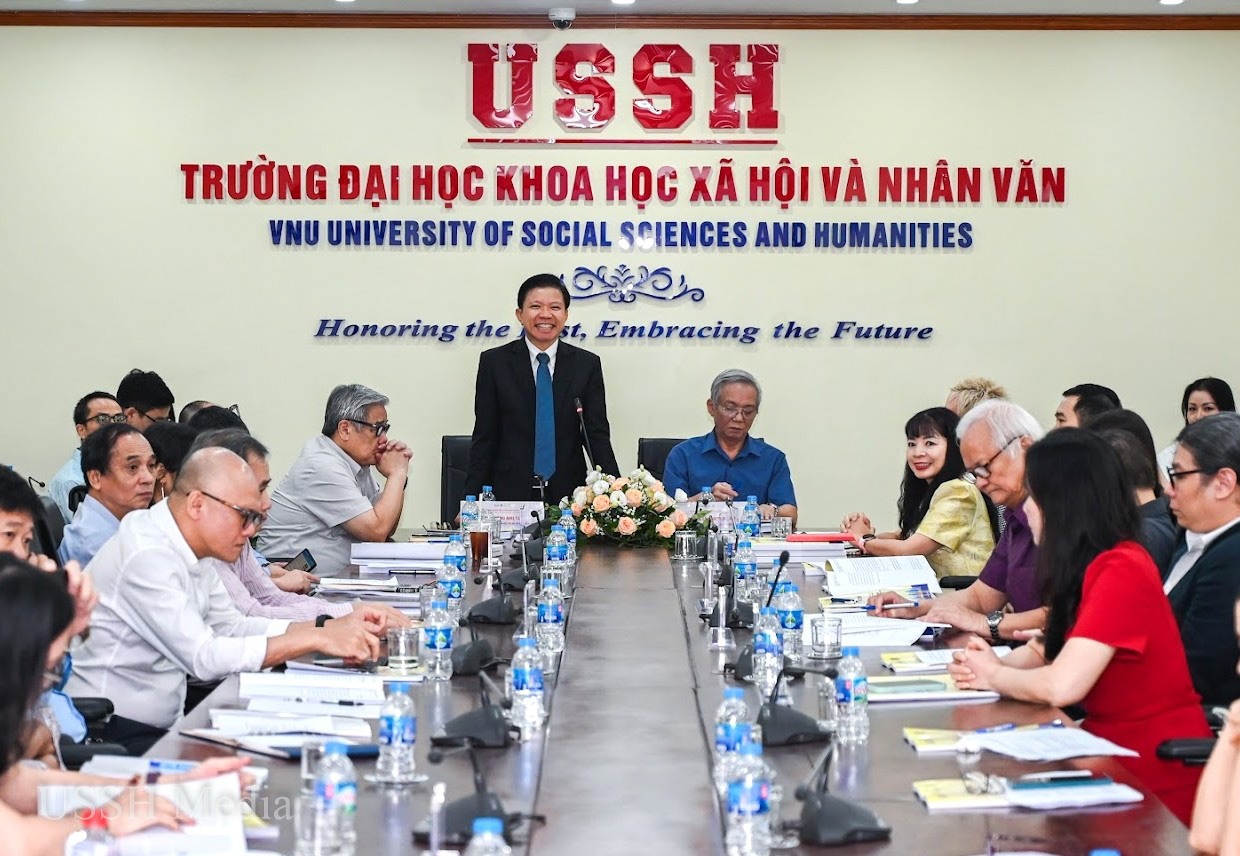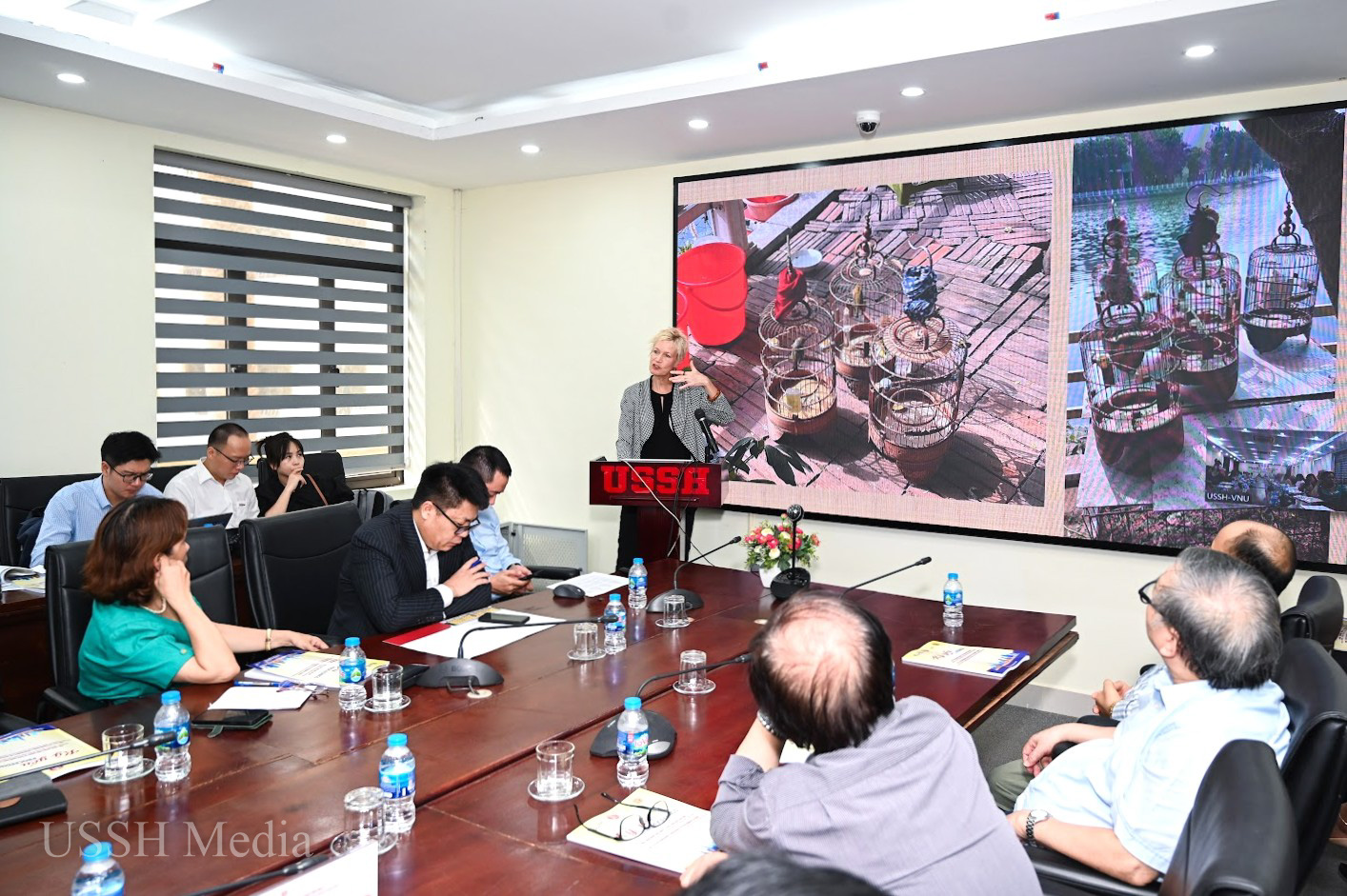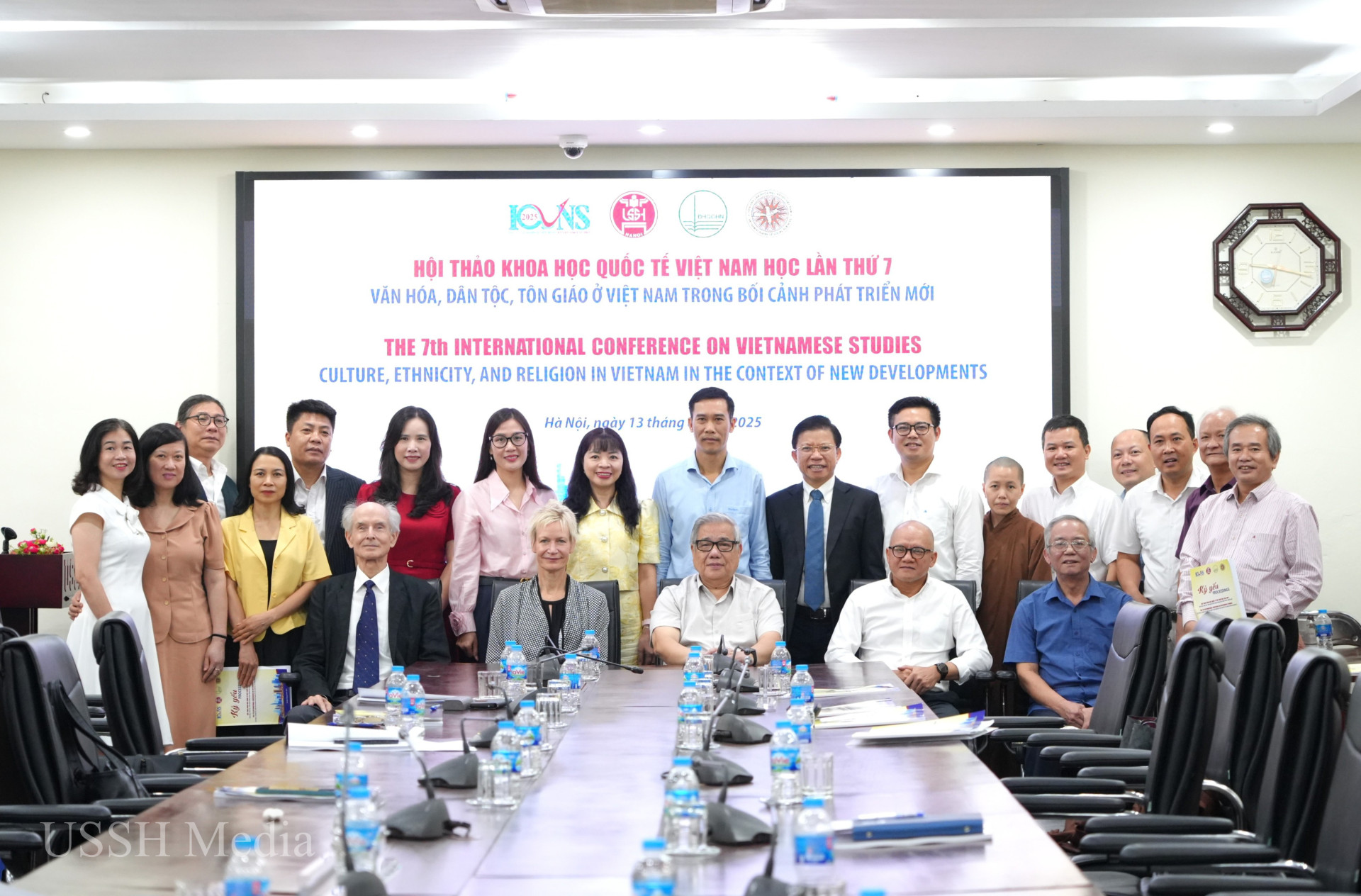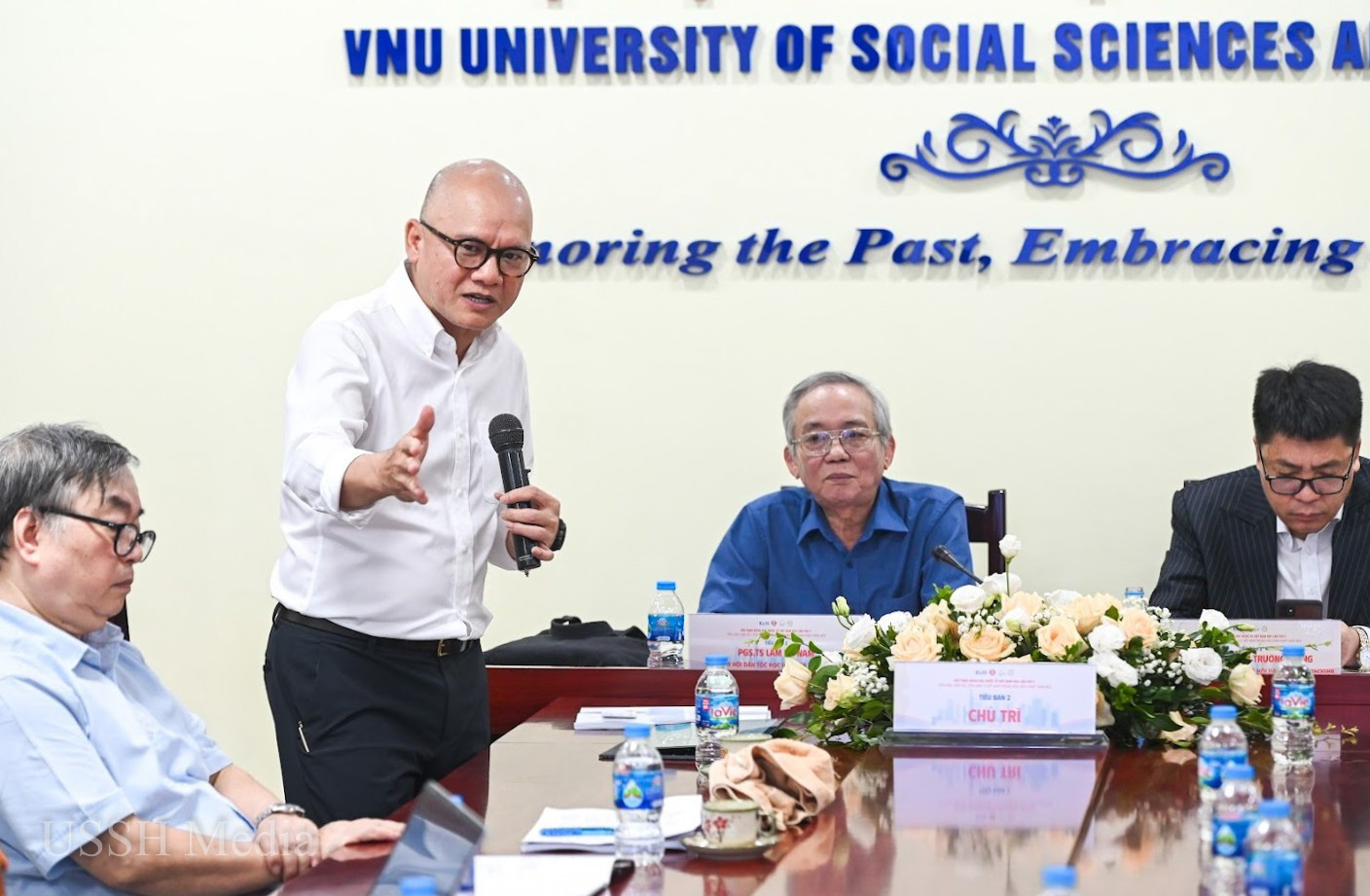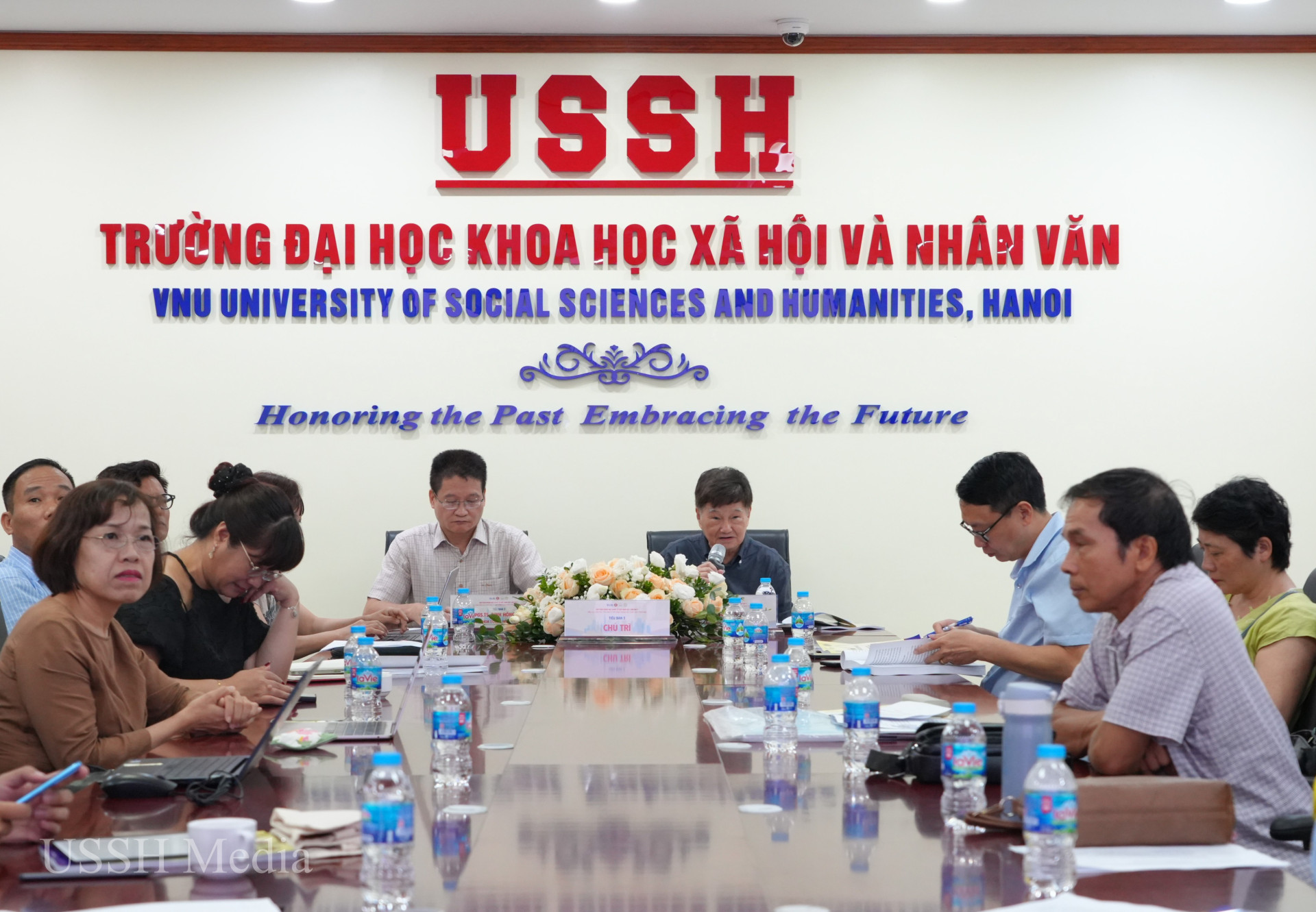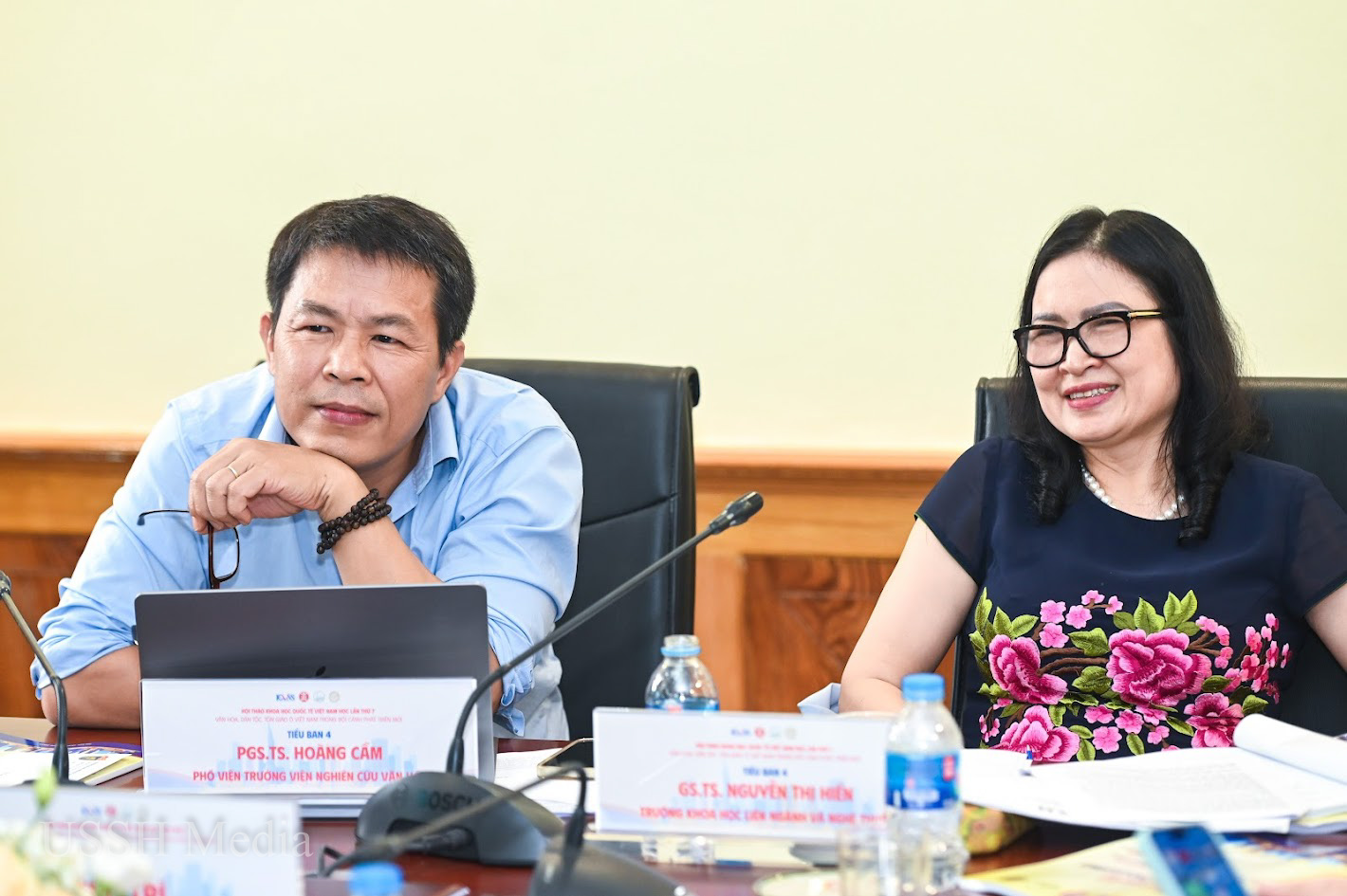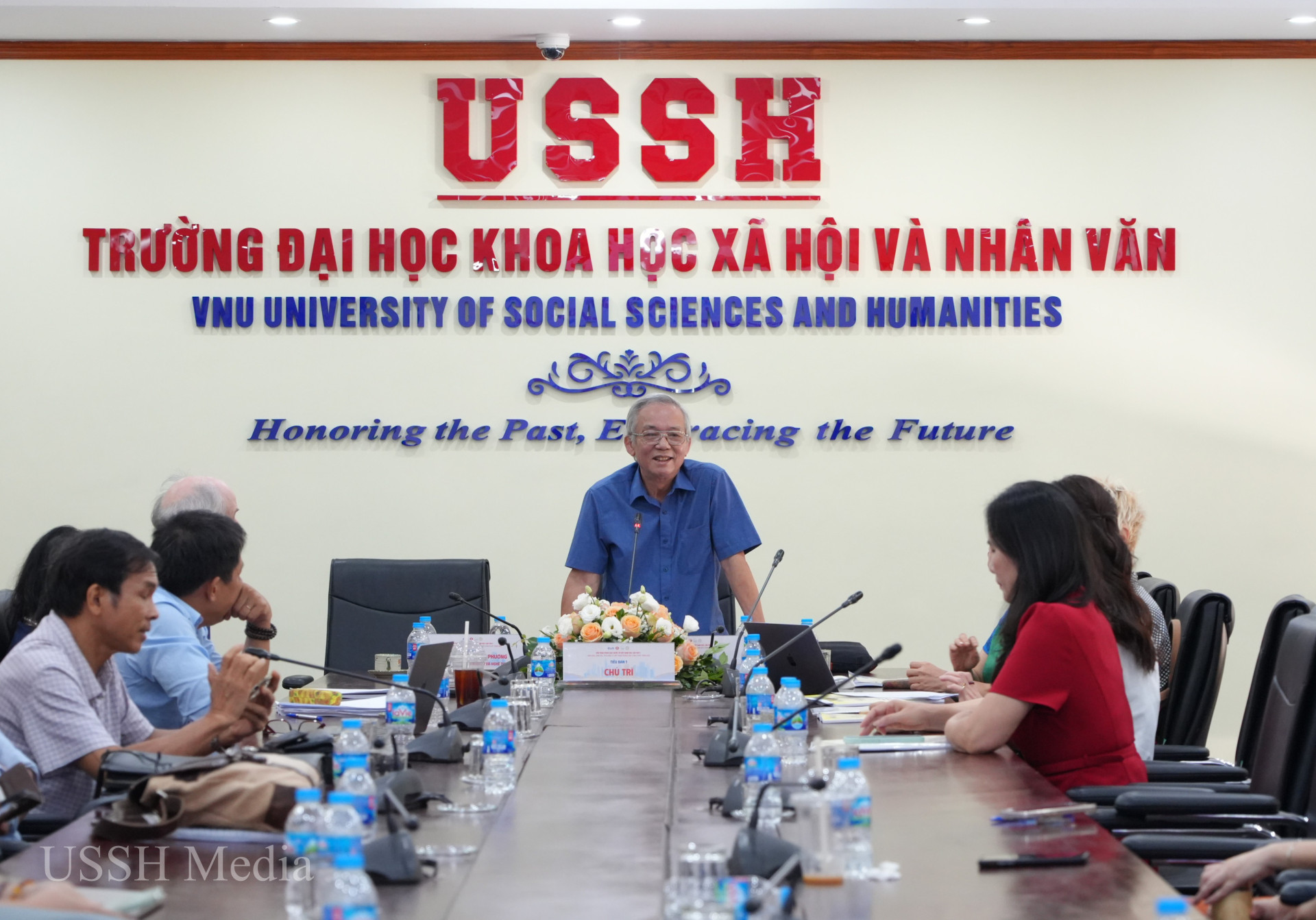Bringing together prestigious scientists from both domestic and international backgrounds.The seminar, themed "Culture, Ethnicity, and Religion in Vietnam in the Context of New Development," aims to clarify theoretical and practical issues concerning culture, ethnicity, and religion in the context of Vietnam's development, modernization, and international integration. The presentations will assess the current state, trends of change, and the impact of development policies on these areas, while also identifying opportunities and challenges.
This is also a scientific forum to share experiences, research results, and propose policy solutions to promote the role of culture, strengthen national unity, and ensure freedom of belief and religion, contributing to the sustainable development of Vietnamese society. In particular, the conference is an opportunity to honor the historical, cultural, and social values and achievements of the Vietnamese nation throughout its 80-year history.
The workshop was attended by more than 100 domestic and international experts and scholars from many prestigious institutions such as the Ministry of Ethnic Minorities and Religion; universities and research institutes under the Vietnam National University, Hanoi; domestic research and training institutions; and experts from the University of California, Riverside (USA), and Nanyan Academy of Arts (Singapore).
Professor Hoang Anh Tuan, Rector of the University of Social Sciences and Humanities, delivered the opening remarks at the conference.
According to scientists, throughout the revolutionary leadership process, the Party and State of Vietnam have consistently upheld the principle and policy of equality, solidarity, respect, and mutual assistance among all ethnic groups for shared development. Throughout the country's development, the Party and State have always ensured and created conditions for ethnic minorities across the country to enjoy freedom of belief and religion in accordance with the law; and supported socio-economic development in ethnic minority areas to contribute to improving their living standards.
Vietnam has 54 ethnic groups, each with its own distinct cultural identity, creating a unified yet diverse Vietnamese culture. The spirit of national unity has been fostered by the entire Party, State, and people throughout all periods and stages of the revolution, achieving great victories, as President Ho Chi Minh summarized: "Unity, unity, great unity / Success, success, great success." Alongside this, strong unity among religions is promoted, with religions integrating religion and life, in the spirit of "religion and nation." At the conference, domestic and international scientists and scholars, from their respective professional perspectives, all focused on a prosperous and sustainably developed Vietnam in the new era.
The conference also received over 100 full papers from scientists, researchers, lecturers, and postgraduate students. Following the conference, the organizing committee will publish the proceedings with an ISBN number, tentatively scheduled for June 2026.
Professor Hoang Anh Tuan (Rector of the University of Social Sciences and Humanities) and Associate Professor Lam Ba Nam (Chairman of the Vietnam Association of Ethnology and Anthropology) chaired the opening session of the conference.
Professor Christina Schwenkel (University of California, Riverside, USA) presented a paper titled "Walking to Explore the Sounds of Truc Bach Lake: Gender Impacts of Redeveloping the Lakeside Area as a Creative City Model".
The workshop was attended by a large number of scientists from ministries, departments, universities, and research institutes.
Valuable research findings on culture, ethnicity, and religion.The workshop was divided into four thematic subcommittees, discussing many issues of current interest. In Subcommittee 1: Culture, presentations focused on cultural characteristics, cultural exchange, and cultural transformation in the context of national development. Specific research topics included: “Gender impact of redevelopment of the Truc Bach Lake area according to the creative city model”, “Visual illusion of the ancient stone face of Suoi Co (Hoa Binh) and the economic basis of the ritual heritage”, “Tracing the origins of village deities after the renovation - the case of Kim Luy village in Dien Chau (Nghe An)”, and promoting the value of the Tam Phu Mother Goddess worship heritage in tourism development.
Professor Le Hong Ly (Chairman of the Vietnam Folk Arts Association) and Associate Professor Pham Quynh Phuong (School of Interdisciplinary Sciences and Arts, Vietnam National University, Hanoi) co-chaired Subcommittee 1.
In the discussion session of Subcommittee 2: Ethnic Groups, research papers delved into ethnic relations, policies, and the practical implementation of ethnic policies in the context of development and integration. Issues presented included: institutionalizing indigenous knowledge in the development of ethnic minority areas, shifting from a "grant and support" policy to a "partnership and creation" policy, and the cultural transformation of indigenous ethnic groups in the Central Highlands.
Scientists discuss in Subcommittee 2
The workshop attracted many scientists and interested participants in Subcommittee 3: Religion, with discussions on religion and changes in contemporary life, and the trend of religion's engagement in the world within the contemporary social context. Notable presentations included: the shift in the Vietnamese Party and State's perception and approach to religion during the Doi Moi (Renovation) period; an assessment of obstacles in developing religious resources in Vietnam when religion is considered a socio-cultural resource; and the transformation of beliefs and religious practices within Hoa Hao Buddhism.
Professor Dr. Do Quang Hung (Former Director of the Institute of Religious Studies) and Associate Professor Dr. Dinh Hong Hai (University of Social Sciences and Humanities) co-chaired Subcommittee 3.
Subcommittee 4: Contemporary Issues discussed various modern, multidisciplinary topics. These included: “Revolutionary Music, Performing Arts Troupes, and Jazz in the New Era of Vietnam,” “Marketing in Vietnamese Social Life: The Transformation of Socio-Economic Space in the Contemporary Context,” and the Impact of Artificial Intelligence (AI) on Religious Life in Vietnam. The subcommittee also discussed the religious practices of the inhabitants of Ly Son Island (Quang Ngai) to strengthen spiritual security and cultural landmarks, along with an assessment of development effectiveness among some ethnic groups in the border region.
Prof. Dr. Nguyen Thi Hien (School of Interdisciplinary Sciences and Arts, Vietnam National University, Hanoi) and Assoc. Prof. Dr. Hoang Cam (Deputy Director of the Institute of Cultural Studies) co-chaired Subcommittee 4.
During the discussions, experts focused not only on the traditional and contemporary aspects of Vietnamese national culture and heritage, but also expanded to a future vision, clearly identifying the theoretical and practical issues facing the country. The Organizing Committee also expressed its hope that international scientists would continue to accompany Vietnam on its journey to preserve and promote its cultural identity.
Associate Professor Dr. Le Ba Nam (Chairman of the Vietnam Association of Ethnology and Anthropology) delivered the concluding remarks at the conference.
Scientists agree that, in this era of national resurgence, research on culture, ethnicity, and religion in Vietnam needs to continue to be conducted in an interdisciplinary manner, linked to the practical development of the country and international integration.
Since 1998,International Conference on Vietnamese Studies Organized jointly by Vietnam National University, Hanoi and the Vietnam Academy of Social Sciences, the International Conference on Vietnamese Studies has become a forum for showcasing the latest research achievements on Vietnam by domestic and international scholars. Over the past nearly 30 years, through six conferences, the conference has published many valuable research results on Vietnam's development, integration, and sustainable development, as well as strengthening international cooperation.
The 7th International Conference on Vietnamese Studies in 2025, themed “Vietnam: Sustainable Development in the New Era,” focuses on the following areas: Research and training in Vietnamese studies; Diplomacy and international cooperation; Economy and society in the context of global change; National governance in the new era; Culture, ethnicity, and religion in the context of new development; Resources, environment, and sustainable development; Education, training, and human development in Vietnam; Science and technology, innovation, and knowledge transfer. The theme “Culture, ethnicity, and religion in the context of new development” is hosted by the University of Social Sciences and Humanities, Vietnam National University, Hanoi.
Some photos from the workshop on August 13, 2025:
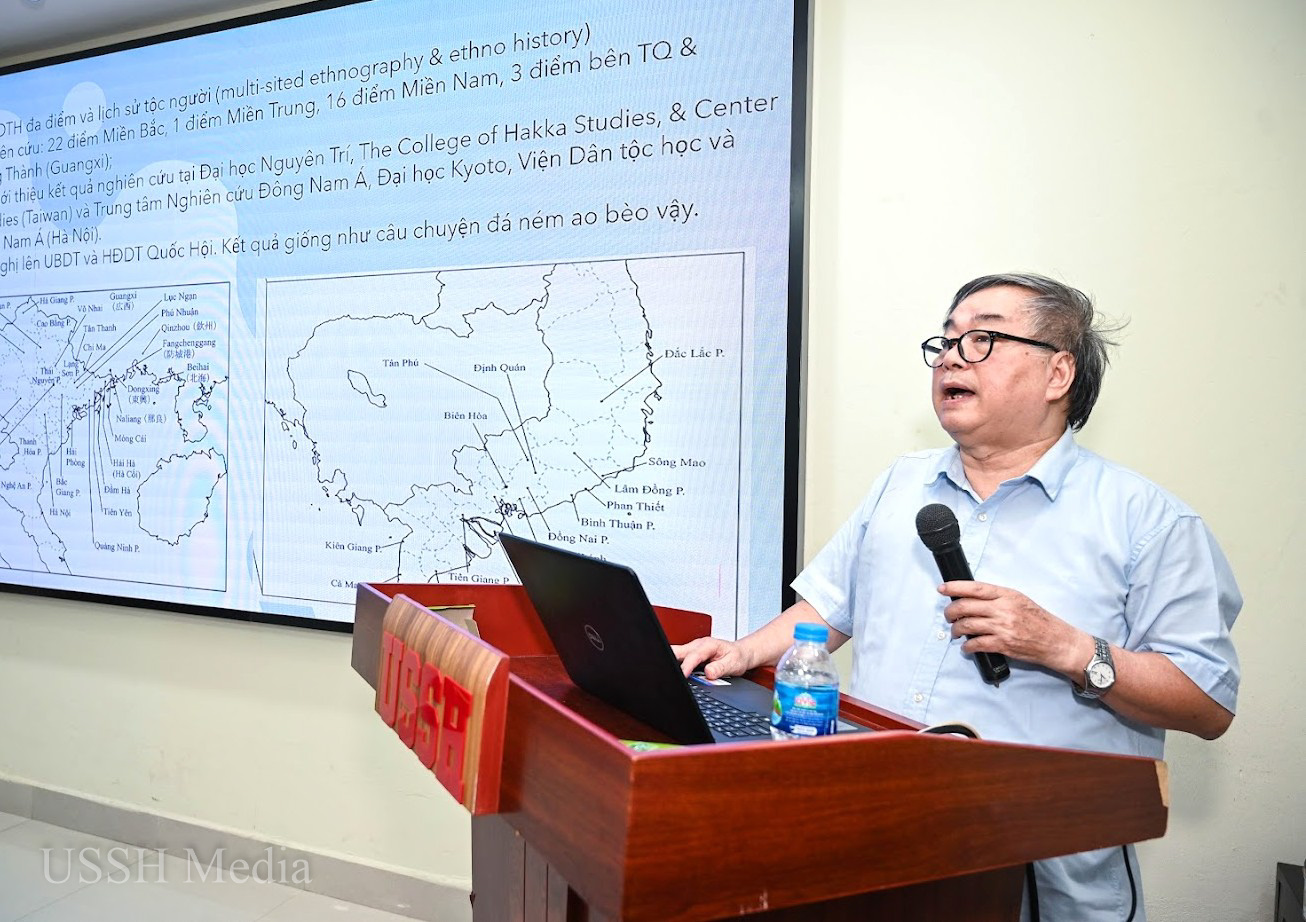
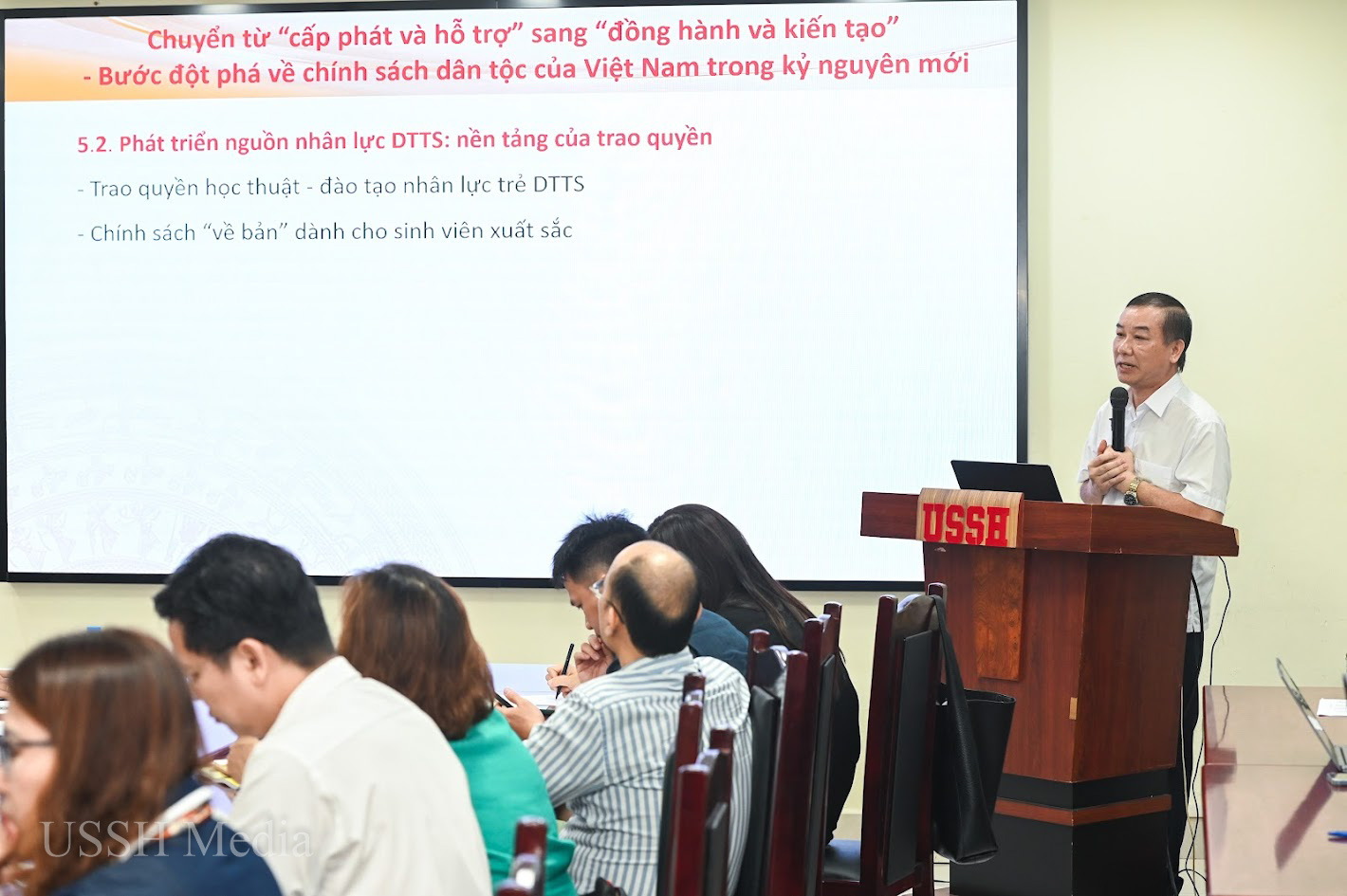
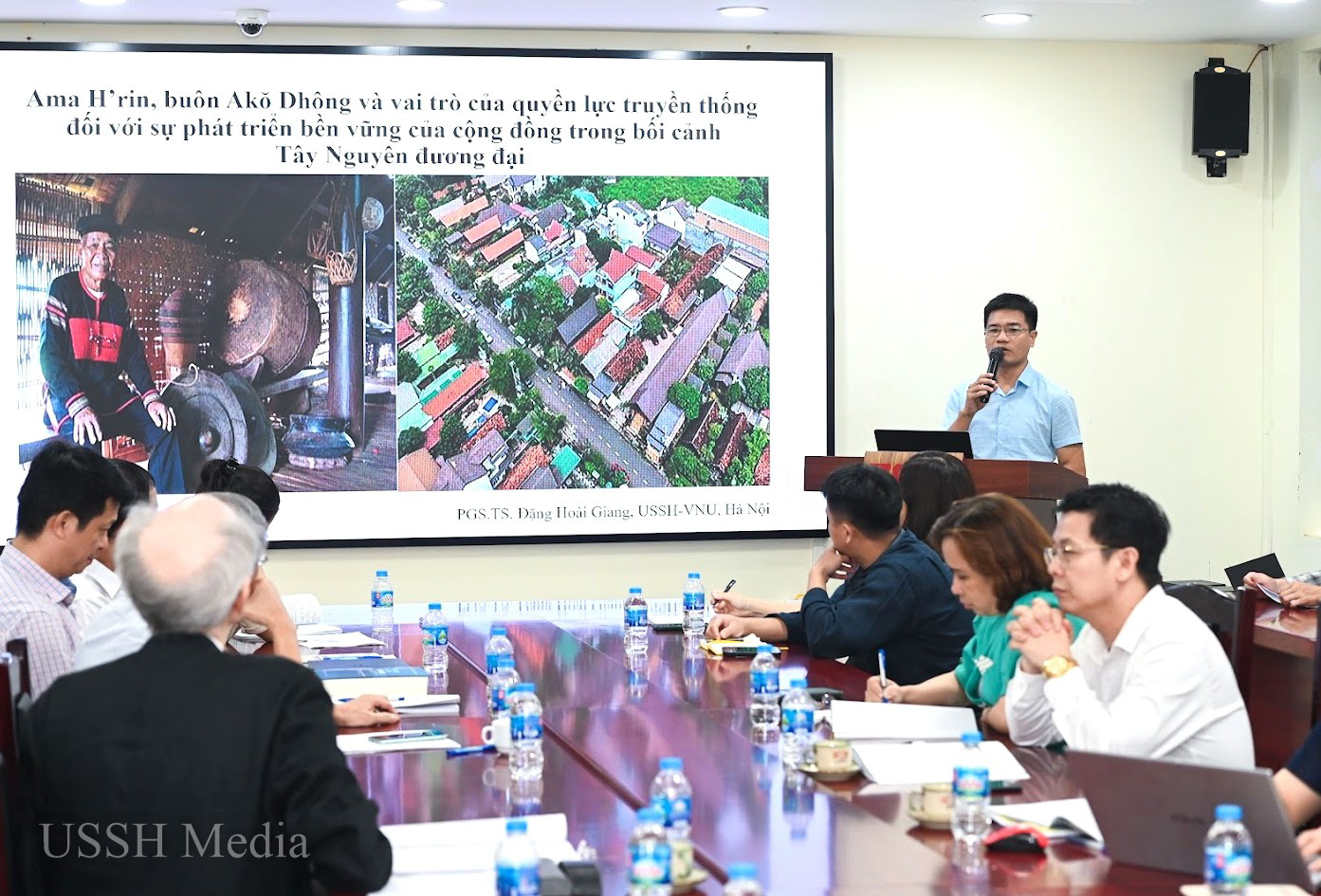
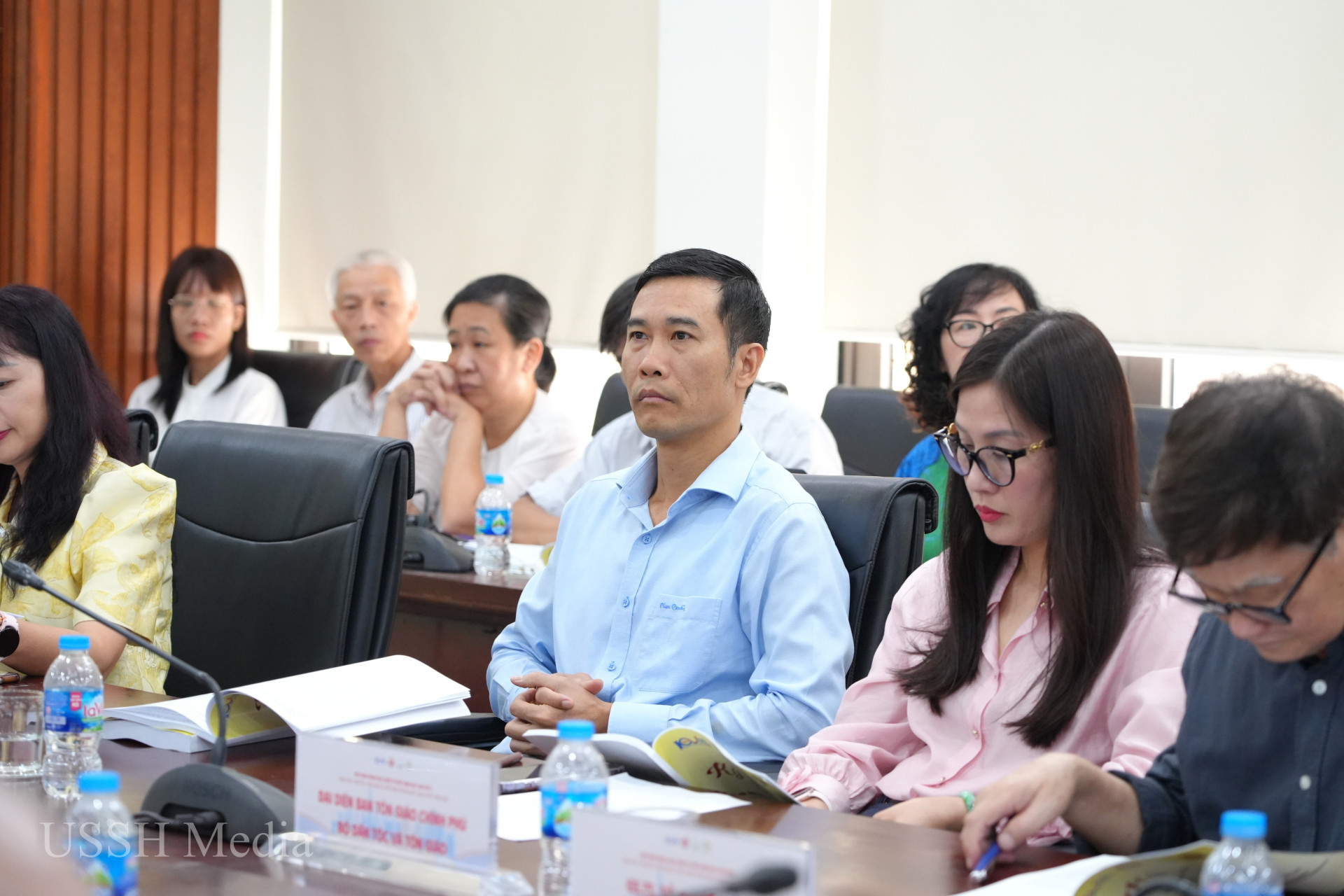
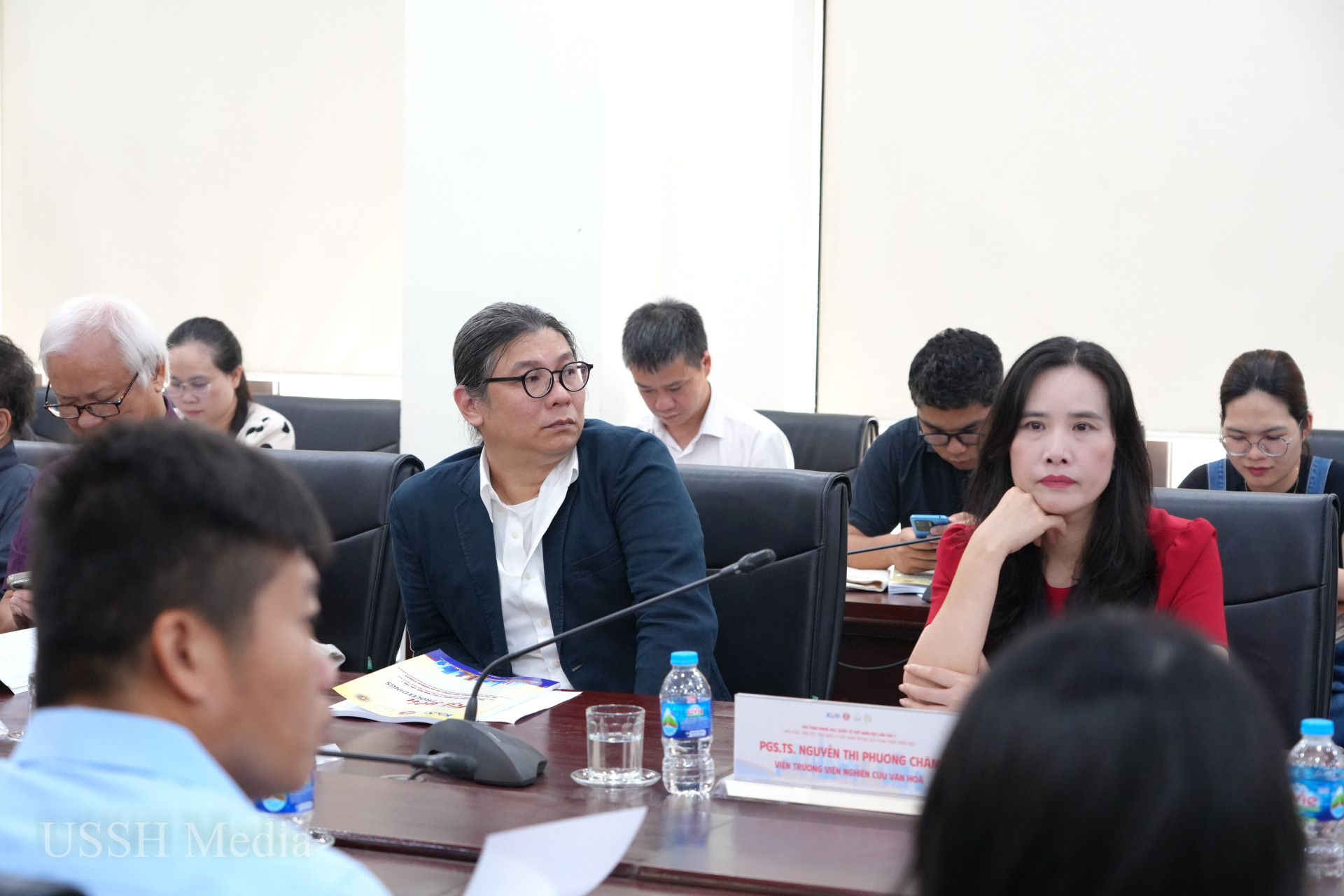

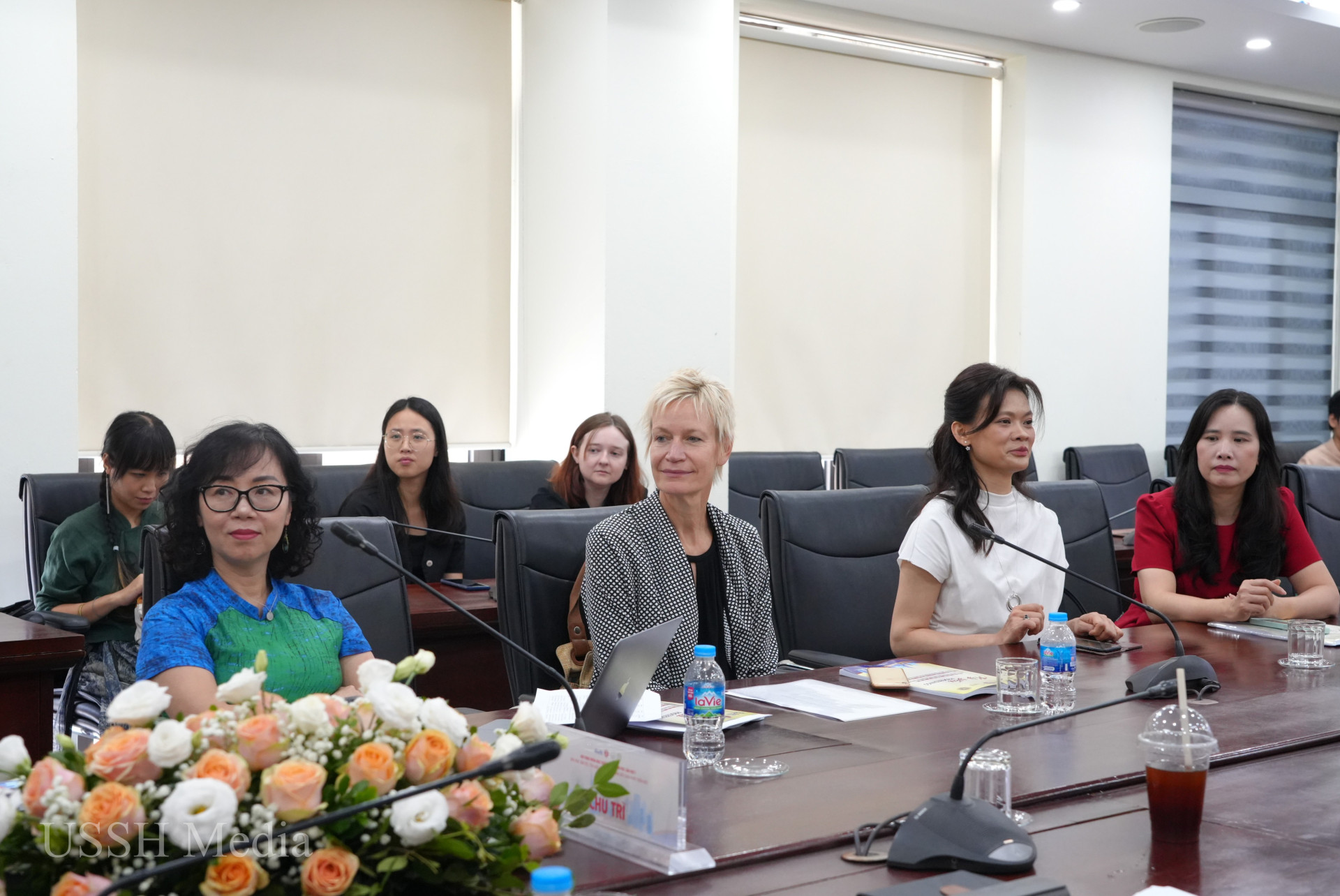
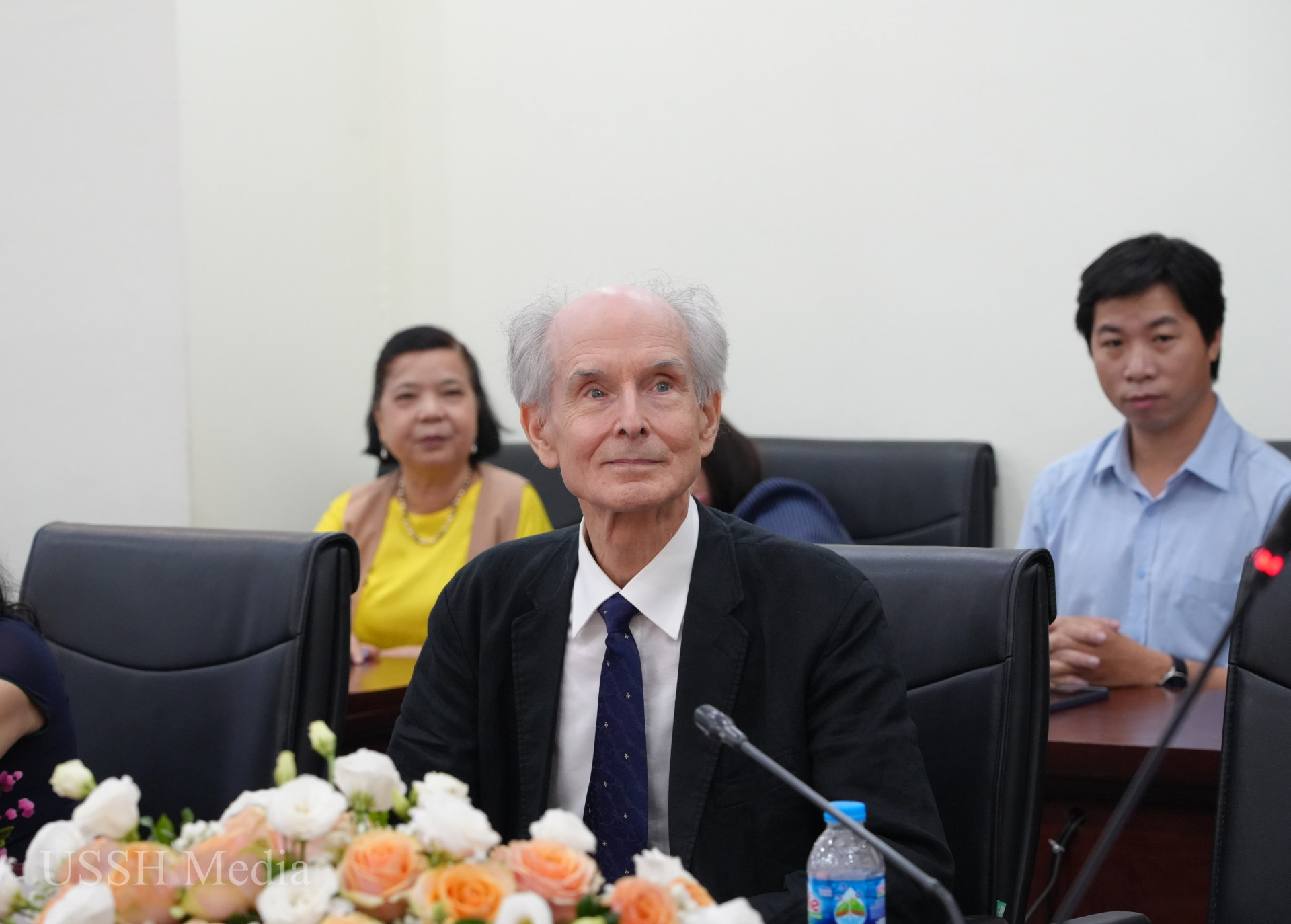
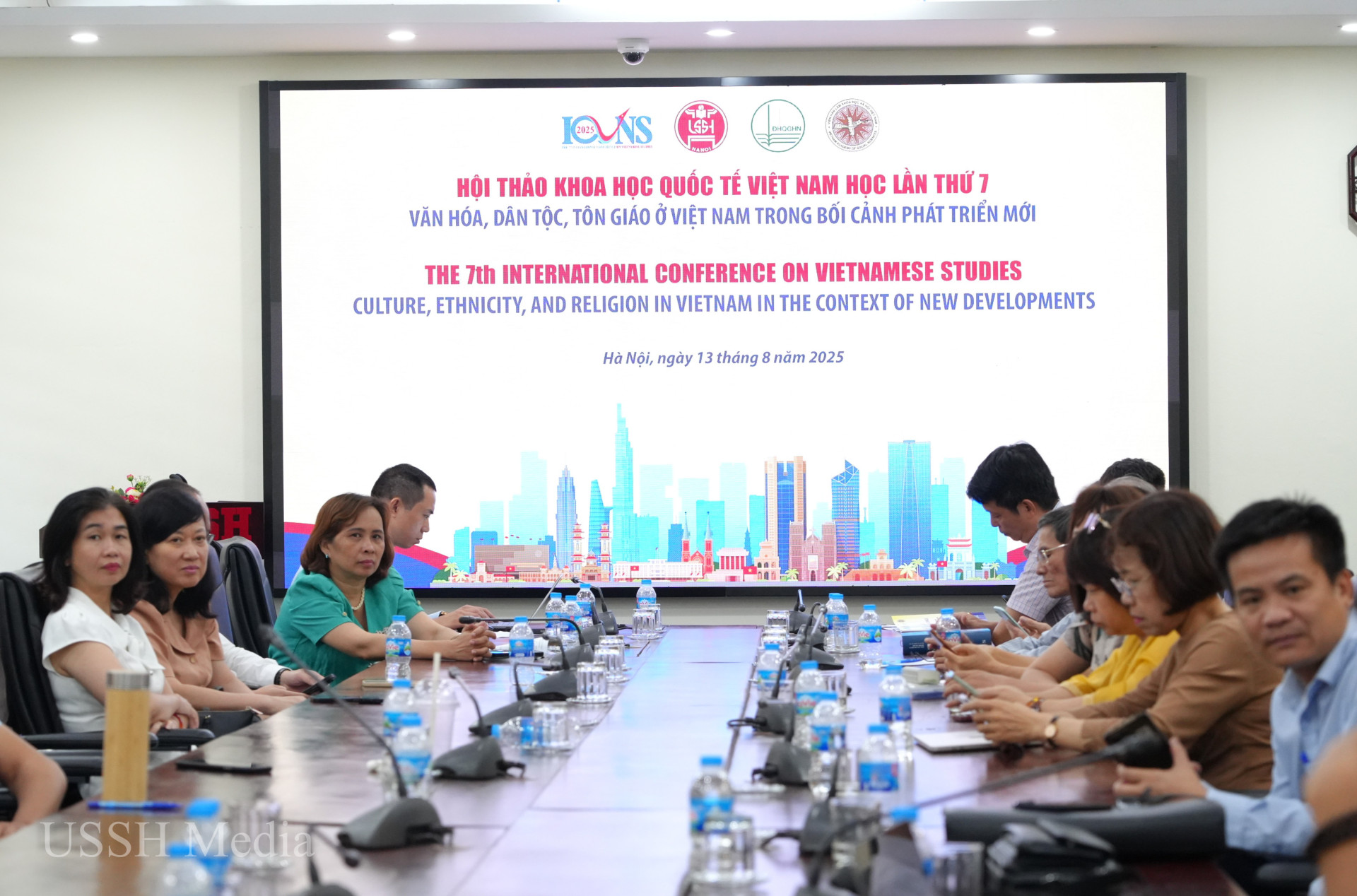
Nhan Dan Newspaper:Promoting cultural, national, and religious values in building a sustainably developed Vietnam.
People's Representatives Newspaper:Culture, ethnicity, and religion in Vietnam in the context of new development.
Vietnam.vn (Ministry of Culture, Sports and Tourism):Promoting cultural, ethnic and religious values in building Vietnam for sustainable development
Vietnamnet:Preserving Vietnamese culture in the digital age.
Vietnam National University, Hanoi: ICVNS 2025: From cultural, ethnic, and religious depth to a new development context.

